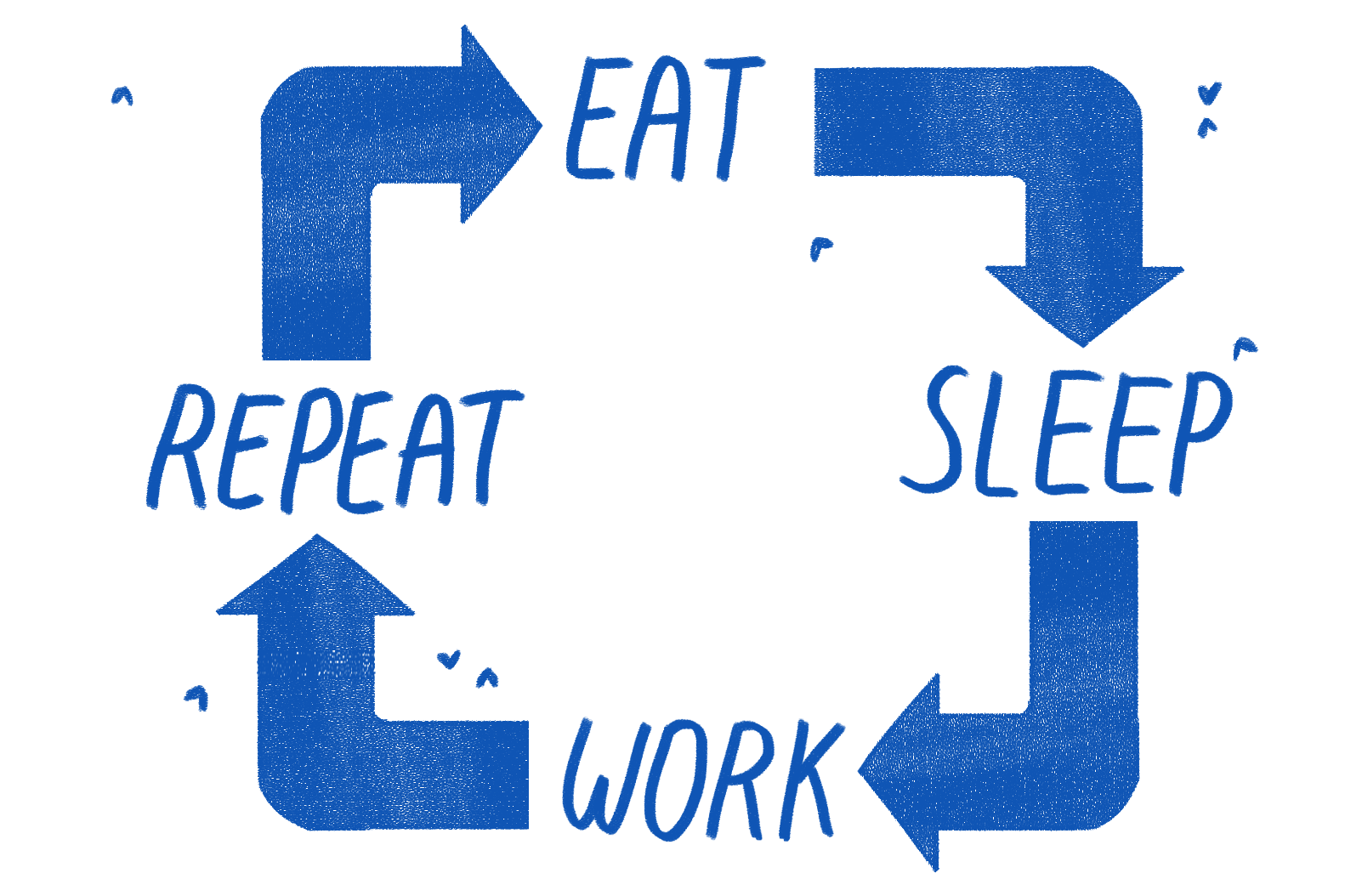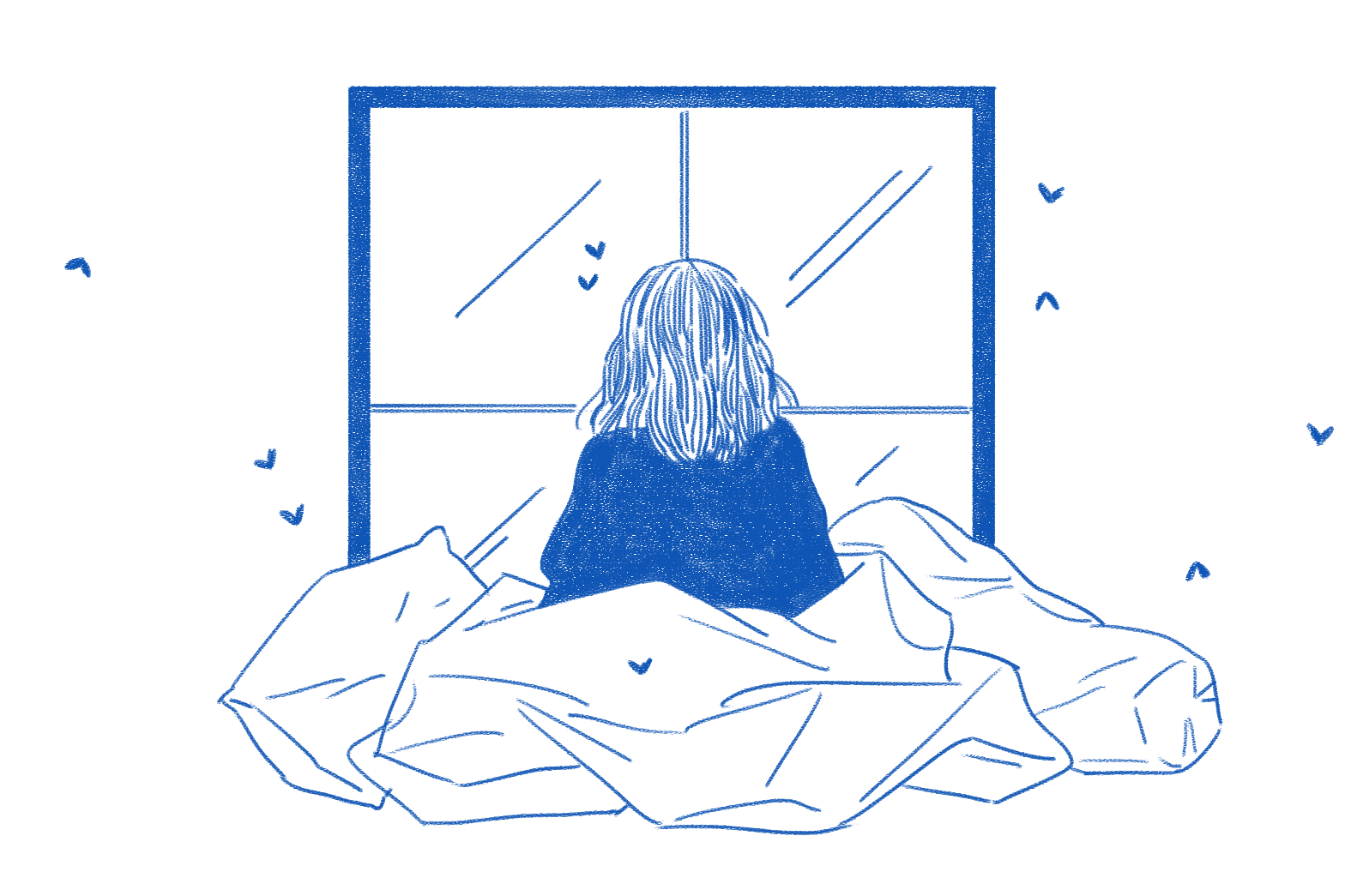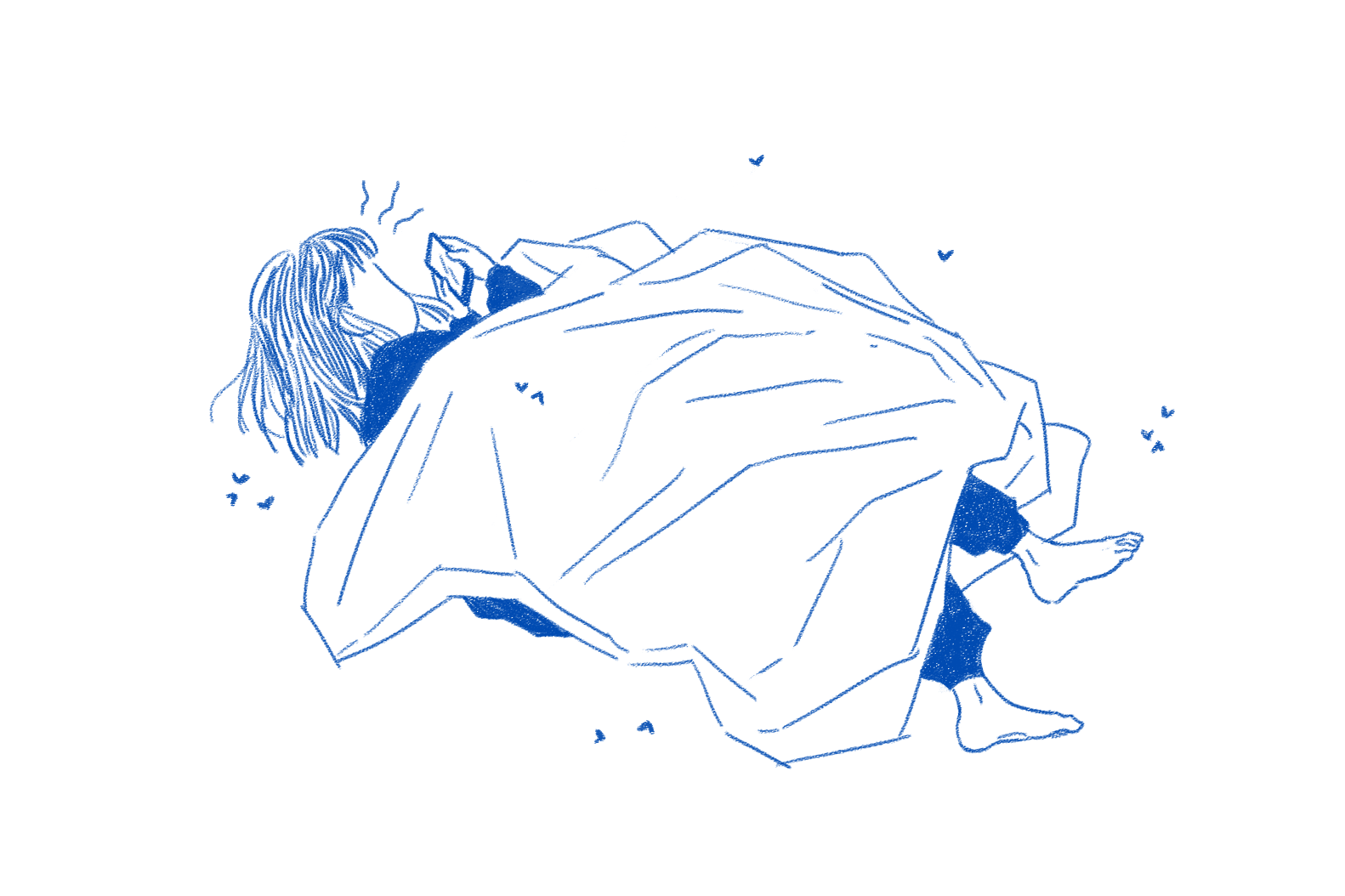The best position to scroll through social media while lying on your bed is sideways. That’s indisputable. But what is disputable is how long we should be in that position, listlessly bed rotting.
We define “bed rotting” as staying in bed for extended periods of intentional unproductivity, which could involve, for instance, excessively using social media or binge watching Netflix to an unhealthy extent.

On TikTok, there are many videos of people simply engaging in bed rotting. It was even Dictionary.com’s word of the day on February 14!
Recently, I have taken to bed rotting much more frequently than I would like to (and I’m sure I’m not the only one). But is bed rotting self-care or actually harmful?
The root of the rot
I realised that the Circuit Breaker measures in 2020 and 2021 left me with some bad habits, bed rotting being one of them.
COVID-19 accelerated the digitalisation of many aspects of our lives but this meant becoming more reliant on our devices.
Being privileged enough to be stuck at home with not much to do also meant I turned to social media, shows and that strange era of Houseparty to fill my time.

However, COVID-19 was not the only reason. There were periods in my life when I felt burnt out, when the constant rat race that is life – wake up, work, come home to do more work, sleep, repeat – would wear me down.
Just look at the amount of responses this Reddit thread on r/askSingapore received about the grind here; many are tired of this hustle culture that expects us to always be on the go.
It is no wonder some of us prefer being holed up in our rooms, ignoring the world from our beds, believing that to be rest.
The hidden dangers
Yet, we must also be aware that excessive bed rotting can have undesirable consequences on our physical, mental and social health. I spoke to ThriveSg founder and lead counsellor Pamela Koh, who outlined a few ways bed rotting can actually be harmful to us.
Pamela shared that studies have shown excessive bed rotting adversely affects our quality of sleep. Too much blue light from our devices can even alter our circadian rhythm as it inhibits the body’s release of melatonin. Hence, we are unable to keep a healthy sleep cycle, leaving us constantly lethargic.
The World Health Organisation (WHO) also states that physical inactivity, which can arise from prolonged bed rotting, can lead to a 20% to 30% increased risk of death compared to sufficiently active people.
Bed rotting can easily take a toll on our mental health. If we are not careful, unhealthy content that we consume excessively can easily perpetuate negative emotions and make us more fearful or pessimistic.
Finally, prolonged bed rotting might lead to withdrawal or isolation from social connections. Relationships are important as they serve different functions like sharing happiness with someone, supporting each other’s burdens and building each other’s faith (Hebrews 3:12-13).
Thus, it is essential for us to reflect on the impact bed rotting has on all aspects of our lives. While there is a space and time to rest, and “bed rotting” on occasion is not wrong, Pamela suggests three questions we can ask ourselves to discern how we could better resting.
Three questions for healthy rest
1. Does bed rotting recharge and rejuvenate you?
If bed rotting causes us to feel much more discouraged, drained or unmotivated, we should reconsider if bed rotting is the best method for rest.
2. Does bed rotting lead you to feel more positively or negatively?
Even if the content we are consuming online is not affecting us negatively, laying in bed and overthinking can lead us into a spiral of negative emotions.
On the flip side, bed rotting could be used as a coping mechanism to push away our emotions, as a way to distract ourselves. It takes as much energy to avoid our emotions as it does to deal with them.
If we find ourselves with a tendency to do either of these, perhaps bed rotting is not the way to go.
3. Does bed rotting leave you with more capacity to connect with others?
Relationships are important as we are social beings. Connections with others help to encourage, edify and support us – even Jesus had His circle of friends (Mark 3:14)!
If bed rotting leaves us isolated and withdrawn, such “rest” might not be the best for us.

These three questions serve as reminders for individuals to be aware of the impacts of their actions. They also indicate whether we need to find better ways to have quality rest.
By experimenting, we can find out what works best for us to experience quality rest. For some of us, it can be as simple as doodling, taking a walk around our neighbourhood or eating healthier food!
If breaking out of bed rotting is difficult, we can start small. For example, we can set a timer for how long we will rest. We can also reduce the time we spend in bed by five minutes each time, or be accountable to someone about the time we spend idling.
Pamela’s encouragement is to get help if we find ourselves engaged in constant and prolonged bed rotting or know someone who does so, as it could be a sign of a deeper issue related to one’s mental health.
Accompanying symptoms related to depression, burnout or addiction to certain things like social media and pornography, are all areas of concern that we need to pay special attention to and receive help for.
Help is available, and we owe it to ourselves to seek it out.
Finding rest for our souls in Jesus
Excessive bed rotting can be harmful to our spiritual lives as well; I have come to realise that laziness points to a life that isn’t set on living for God.
Indeed, the Bible warns against laziness (Proverbs 6:6) and sluggishness (Proverbs 24:30-34). After all, God put us on the planet to cultivate and care for the things on His heart (Genesis 2:15).
There is no room for laziness in the lives of those made anew by Jesus’ sacrifice on the cross. As servants of God, we are called to do all things not begrudgingly, but with all our heart (Ephesians 2:10, Colossians 3:23).

We can find rest in Jesus when we start following the direction He has planned for our lives.
This process of realignment will look different for each of us. For some of us, it might mean learning when to say “yes” and when to say “no”.
It could also mean examining our hearts and getting rid of the idols that have taken precedence over God. It could be spending more time with God through worship and praise, or reading Scripture.
What does coming back to Christ look like for you? It’s crucial if you want your soul to be refreshed; bed rotting is merely a temporary escape from the troubles of the world.
In the light of eternity, we must hold on to the fact that Jesus is living water for all who are thirsty (Isaiah 55:1, John 7:37).
If you are reading this from the comfort of your bed, I urge you to literally put your two feet on the ground.
Open up your windows and let the wind and warmth of the sun envelop your face.
Will you make today your first step in breaking the cycle?
Now that you’re on your feet, why not check out ThriveSg’s Emotional Resilience Course that’s happening from 29 June to 3 August? Registration closes on 22 April! Do follow ThriveSg’s Instagram account for more mental health resources that will help you live an empowered life.
- Do you “bed rot” often? Why do you think you do so?
- What are some steps you can take to reduce the time you “bed rot”?
- How can we surrender our stress, anxieties, and worries to God?









